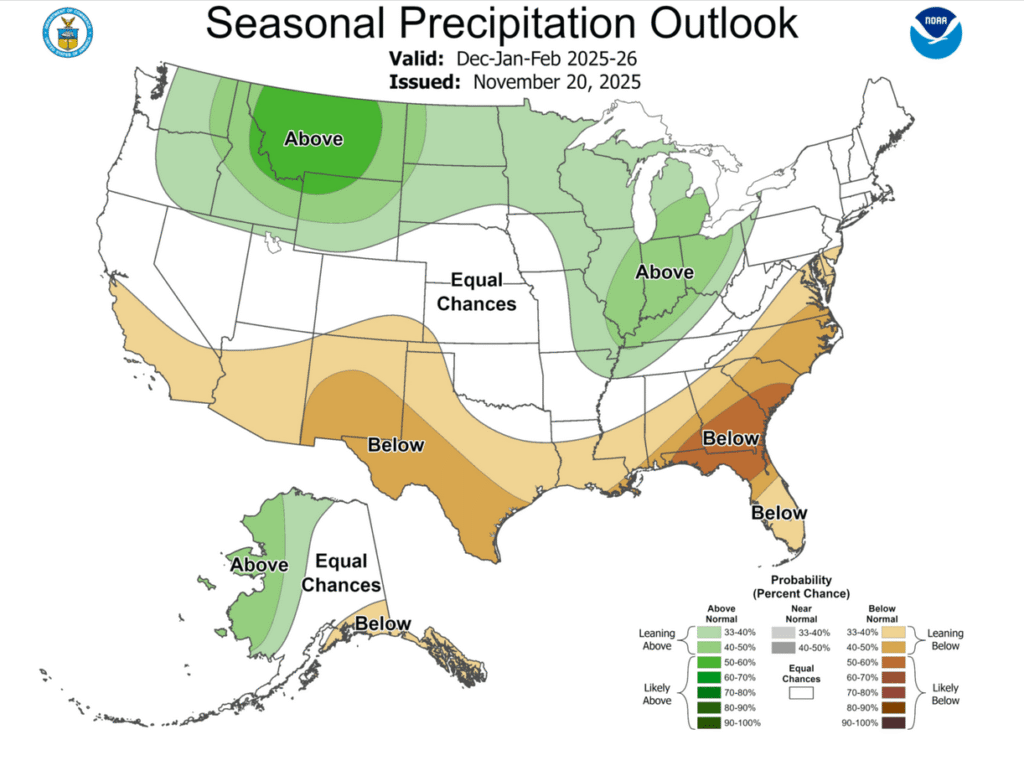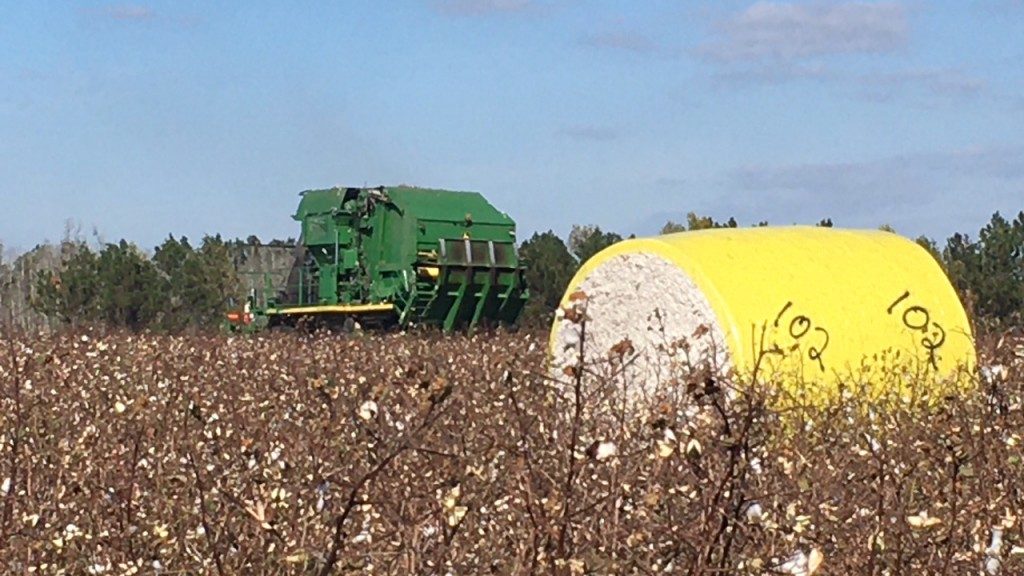Have a Happy and Safe Thanksgiving!! The Colquitt County Extension office will be closing for Thanksgiving tomorrow afternoon, and we will reopen on Monday, December 1, 2025.
Harvest is coming to end and the dry weather continues across the state. According to the drought monitor, 100% of Colquitt County is suffering from D3 or extreme drought conditions. Local CocoRahs data suggests that the Colquitt County area has received 23% of normal rainfall as of today (November 25, 2025). According to Pam Knox, UGA , “The worst-hit areas of the region are in southwestern Georgia and the Florida Panhandle, where a D4 Exceptional Drought has now been designated due to their continuing lack of precipitation. Drought has also reappeared in southern Florida. The current La Nina is likely to make conditions there worse over the winter because La Nina winters are often warmer and drier than average, although there could be some temporary improvements.”

Pam also mentioned that the latest monthly and seasonal outlooks for winter 2025-2026 were released today (November 20, 2025). They show the continued classical pattern for a weak La Nina, not surprising since we are in that now and it is expected to last for the next few months. Unfortunately, the dry conditions in southern Al and GA as well as the Florida Panhandle make it likely that the drought there may get even worse in the next few months. This is a concern for farmers who need rainfall over the winter as well as those hoping to get an early start planting next season, since there is a good chance that dry conditions may affect seed germination.

It is dry! Do I plant my winter annuals now? According to Dr. Lisa Baxter, UGA Forage Agronomist, winter annual forages should have been planted by the end of October. Planting outside the recommended planting window is possible but will result in lower seasonal production. Before you decide to plant this December, we need to compare the expense of planting the seed with the profit from expected yield or production. These expenses include seed, fertilizer, labor, etc. If you need help with calculating cost of winter annual forages, please contact your local county Extension agent. While there is limited research available for late planted cool season annuals, it can be assumed that yield decreases dramatically with later planting dates. Late fall plantings rarely see yields above 4,000 pounds per acre. Winter plantings will not produce more than 2,000 pounds per acre. The yield achieved in late plantings may not be a good return on your investment. So, what do we do now? Keep that seed in the bag and plan on planting next fall!
Corn Variety Plots! Several county agents across the state plant the same 10 varieties in various yield environments to evaluate yield potential. The 10 varieties include Dekalb 7045, Dekalb 6835, DG60TC45,
DG 58TC94, Pioneer 1608, Pioneer 17677, Cropland 5911, Cropland 5893, Agratech 704VT2P, and Agratech 85VT2P. The table below shows the result from the Colquitt location that was hosted at the Sunbelt Ag Expo.

The table below shows other locations in Early, Grady, Mitchell, Sumter, and Terrell Counties. The Colquitt, Sumter, and Terrell locations consisted of three replications, and some locations had more varieties than others.

We had the opportunity to evaluate 17 varieties from AgriGold, Dekalb, DynaGro, Innvictis, Integra, Revere, NK, and Seedway at a second irrigated location in Colquitt County. The results are in the table below. I would like to thank all industry and growers who helped to make this project possible.


Beefonomics: Cattle Market Update – Risk Management
Dr. Will Secor
Recent market swings have highlighted the importance of making an intentional risk management plan. Click below to see how a structured approach to risk management can strengthen long-term decision making for cow-calf producers. Read more
I had a question about if the information was available from the webinar series call “Who Will Fill My Shoes: Succession Planning for Land Owners, Farmers, Forest Owners, and Family Businesses.” I mentioned this in a newsletter a while back. Below is the link to the resources from this series.
Have a safe and Happy Thanksgiving,
Jeremy M. Kichler
Colquitt County Extension Coordinator
The University of Georgia Cooperative Extension does not endorse or guarantee the performance of any products mentioned in this update
